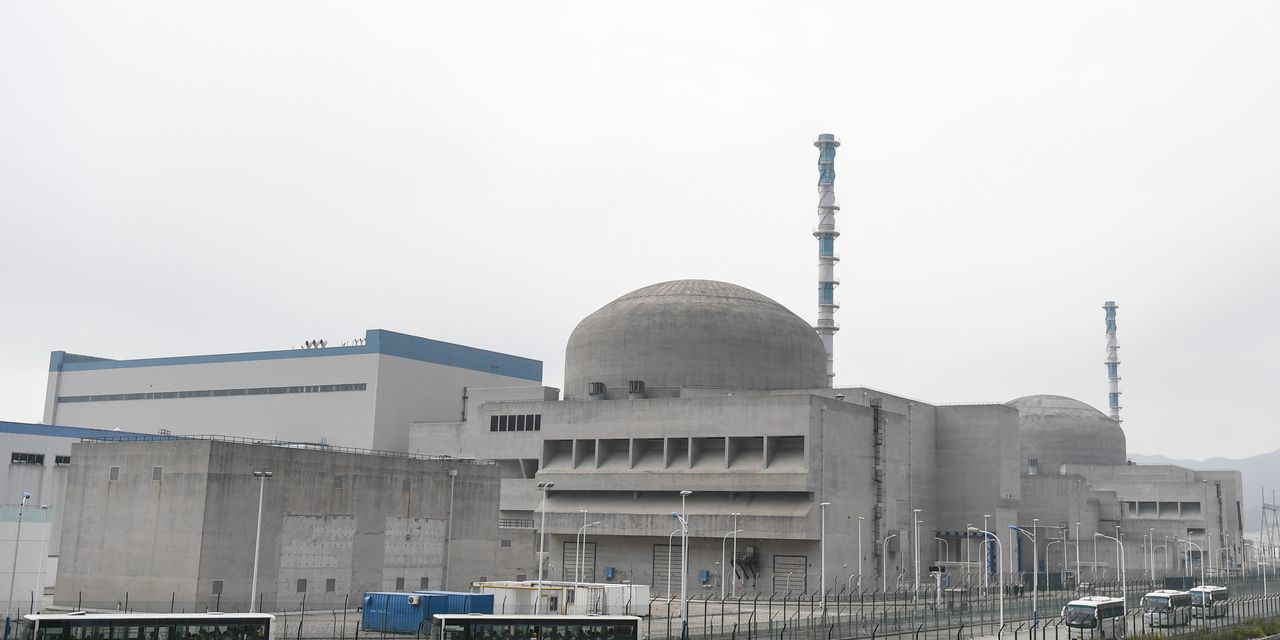A group of uranium mining companies saw their stock prices plunge on Monday after news emerged that a nuclear power plant in Southeast China flagged a performance issue. It was yet another unnecessary investor meltdown.
Canadian uranium mining companies
Cameco
and
NexGen Energy
dropped 10% and nearly 9%, respectively, and a basket of uranium-related companies tracked by the
Global X Uranium ETF
URA 2.64%
fell 6.5%. They regained some of that lost ground by Tuesday afternoon.
Monday’s reaction came after CNN reported that the U.S. government was assessing a report of a leak—not of radiation but of inert gases—at a Chinese nuclear power plant co-owned by two Chinese energy companies and French energy company EDF.
The market response is almost comparable to what happened after the Fukushima nuclear accident in 2011, which led Cameco shares to fall almost 13%. But that turned into a major hit to nuclear-fuel demand affecting the industry for years.
Monday’s drop looks like an outsize reaction for several reasons. Uranium mining companies tend to operate on multiyear supply contracts with utilities, so there is little risk that a nuclear power plant would immediately pull back buying from these mining companies.
Instead, the risk of a nuclear incident is if it saps future demand—either by shutting down the nuclear-power plant in question or if the incident changes governments’ and companies’ decisions to build new ones in the future. Neither seem likely, but nuclear stocks have sold off before on similar headlines.
So far, it seems the incident was more of a routine operational issue rather than an accident. The issue was flagged because of a buildup of noble gases in one of the reactors’ primary circuits.
EDF has said the cause was probably a degeneration of coating on some of the fuel rods and noted that a buildup—in small quantities—isn’t considered dangerous. The company has said the presence of gas in one of its reactors’ primary circuits was a “known phenomenon, studied and provided for in the reactor operating procedures.”
Jeff Merrifield, a former U.S. nuclear regulatory commissioner, told Bloomberg that the kind of incident reported at the Taishan Unit 1 reactor has happened enough times in the industry that operators know how to manage it, adding that it is usually not any kind of threat.
Importantly, there has been no evidence of actual danger: No abnormal radiation was reported by either Hong Kong, located 80 miles away from the power plant, or Macau, which is about 40 miles from the plant.
Almost exactly 11 years ago, news emerged of a fuel rod leakage at China’s Guangdong Daya Bay nuclear power station, which caused a small increase in radioactive iodine and noble gases in the reactor’s cooling water.
It didn’t affect the power plant’s operations and had a milder effect on uranium-related stock performance.
The Global X Uranium ETF fell 2.5% at the time, while Cameco’s stock price actually rose. One big difference might be that the incident 11 years ago came before the Fukushima incident, which slammed the industry and shifted the public’s perception of nuclear power.
Past nuclear disasters have understandably made any story involving “nuclear” and “leak” rather loaded.
In this case, the word association looks much more alarming than any real-life health or economic consequences.
Write to Jinjoo Lee at jinjoo.lee@wsj.com
Copyright ©2020 Dow Jones & Company, Inc. All Rights Reserved. 87990cbe856818d5eddac44c7b1cdeb8













































